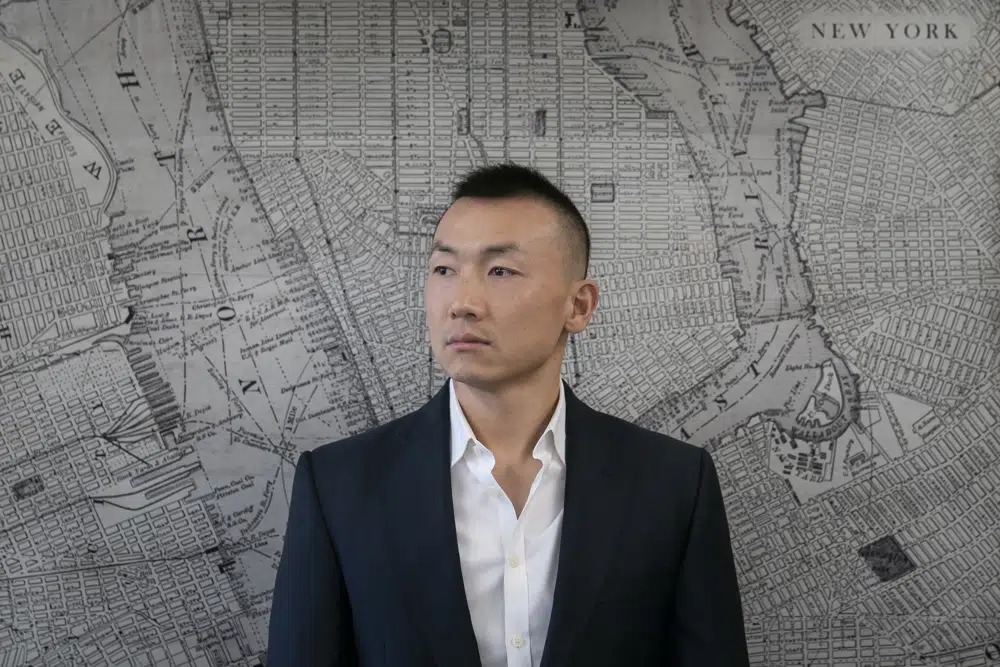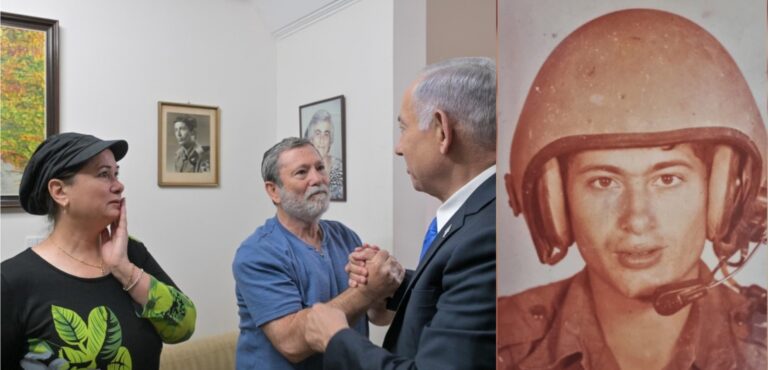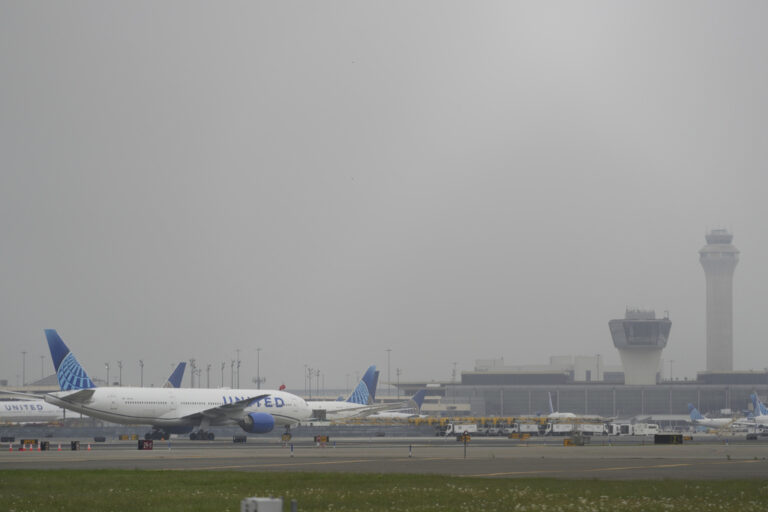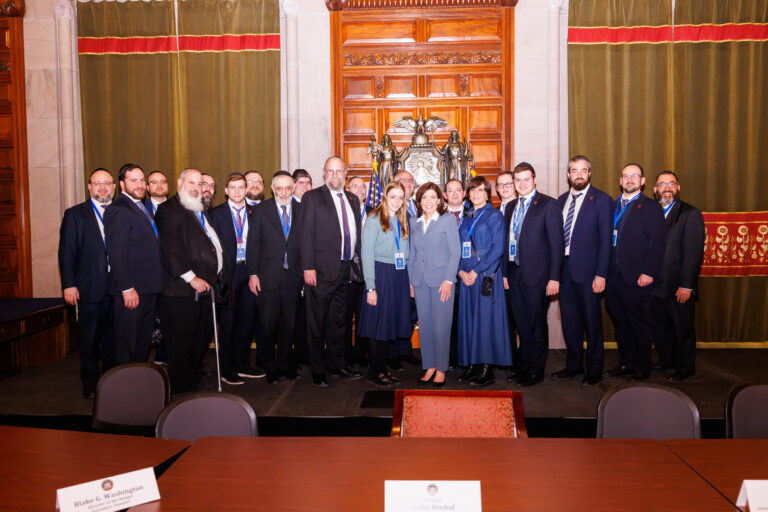On a September day in 2020, New York City Police Officer Baimadajie Angwang kissed his toddler goodbye and was about to drive to work when he was surrounded by rifle-toting FBI agents.
You’re under arrest, the bewildered cop was told. The charge: Being a secret agent for China.
Angwang, a former U.S. Marine, spent six months in a federal detention center before he was freed on bail while awaiting trial on charges that he fed information about New York’s Tibetan community to officials at the Chinese consulate in New York.
Then, just as suddenly, it was over. Federal prosecutors in Brooklyn dropped the charges Jan. 19, saying only that they were acting “in the interest of justice.” They didn’t explain further.
Now Angwang says he wants to be reinstated to the police force, which suspended him with pay while the case was pending. But more than that, he wants answers.
“Why did you start the investigation on me? Why did you drop all the charges?” said Angwang, who was born in Tibet but was granted political asylum in the U.S. as a teenager.
“We want an explanation. We’re demanding it because you owe me,” he said during an interview at his attorney’s office. “You can’t just put me in jail for six months and ruin my name, ruin my reputation and give all this stress to my family members and friends, and then you say, ‘in the interest of justice.’ You just going to leave it like that?”
China’s Communist Party has ruled over Tibet for seven decades and China has claimed a vast stretch of the Himalayas as part of its territory since the 13th century. But the relationship has been fraught with tension, with many Tibetans — some in exile — seeking independence.
The original charge against Angwang was that he began supplying information to Chinese officials on Tibetan independence groups in New York in 2018.
In court documents, prosecutors said Angwang was a threat to national security. He was charged with being an unregistered foreign agent, making false statements to federal investigators, obstruction of justice and wire fraud. There were no allegations of espionage, a more serious accusation.
In building its initial case against Angwang, prosecutors argued that he provided intelligence on ethnic Tibetans who might cooperate with Chinese officials and advised them on how to expand China’s “soft power” in New York.
Specifically, the government said, he sought a tit-for-tat arrangement that would give him a 10-year visa to his homeland in return for surveillance information and access to the police department.
The case was built partly on recorded phone calls, including some in which authorities said Angwang called a consular official “big brother” and “boss.”
Angwang told The Associated Press his words were either mistranslated from Mandarin or taken out of context. He said he became superficially friendly with Chinese officials because he needed the visa to visit his homeland, so his parents and other relatives could finally meet his daughter.
The judge presiding over the case sought answers about why the charges were dismissed, but federal prosecutors declined to divulge classified information that might have given clues.
The U.S. attorney’s office in Brooklyn declined to comment.
The judge agreed to dismiss the case without prejudice, meaning the government could press charges again, a possibility hanging over Angwang but his lawyer suggests is unlikely.
The attorney, John Carman, surmised his client became caught up in the Trump administration’s effort to root out Chinese espionage across U.S. institutions, including the economy, academics and other facets of public life. Angwang contends there were shades of racism targeting people with Chinese links.
“I think our criminal justice system sometimes goes off the track when it has a publicity aspect to it and when it has a political aspect to it. And this case had both,” Carman said.
Angwang first visited the U.S. as a teen on a cultural exchange visa. He went back to Tibet but later returned to the U.S., saying he had been arrested and beaten by Chinese authorities. He moved in with an uncle in Queens and was granted asylum at age 17.
In his adopted country, Angwang enlisted in the U.S. Marines and served in Afghanistan. After being discharged, he joined the Army Reserves and enrolled in the police academy.
He said it was his way of giving back to a country that has been so good to him.
With the charges dropped, he said he wants to regain the good graces of his Tibetan community, which remains suspicious.
“I’m very proud of my heritage. I love my culture and I love the community,” Angwang said. He said he was wrongly depicted as a three-way traitor.
“So I’m a traitor of my birthplace? I’m a traitor of America? I’m a traitor of the Tibetan community — which I was never a traitor. I never betrayed anyone — my fellow Tibetans, my fellow Americans, anybody.”
Norbu Choezung, the president of the Tibetan Community of New York and New Jersey, a group comprising some 10,000 members of Tibetan heritage, remains wary. He, too, wants the government to provide more details about why it dropped the case.
“It’s a little fishy,” Choezung said. “We as a community definitely want to dig deeper why his charges have been dropped, and how those things happened.”
U.S. District Judge Eric Komitee, who presided over the case, was left with questions but said he was glad Angwang’s ordeal was over.
“In some ways a straightforward case but also in some ways, especially given the landscape of statutes at issue, a complicated matter,” the judge said, also noting the “fanfare” in which the case was brought.
“It’s unfortunate, obviously, that Mr. Angwang did serve as much time as he did in jail pretrial or in detention pretrial,” the judge said, “but better late, as they say, than never.”
(AP)












3 Responses
He’s also entitled to back pay and any consequential damages as a result of his false imprisonment and wrongful loss of employment.
And they should probably be asking about how those responsible will be punished.
A civil law suit is called for.
“Better late than never” . So callous. This judge, and all judges in fact, dont know what it means to spend 6 months in jail. To them whats a year or 2 of your life in jail whats the big deal. So wrong. To the people in jail every day is everything. A year is a life time.
Judges should be required to spend time in jail to know what they are doing to people.